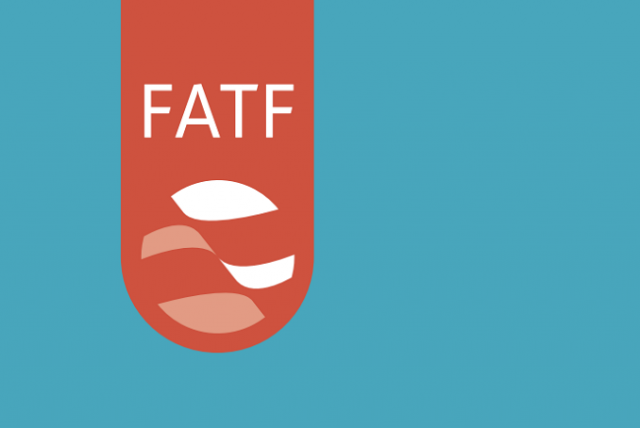Pakistan’s FATF blues not over yet
Hammad Azhar says APG may give new action plan on curbing terror financing

PHOTO: FATF
The Asia Pacific Group -- the FATF-styled regional body -- had found serious deficiencies in Pakistan’s anti-money laundering measures and combating terror financing frameworks in its mutual evaluation report released a few weeks ago.
“As a result of the MER carried out by the Asia Pacific Group, Pakistan was under observation till October 2020,” said the minister.
He gave a briefing to the National Assembly Standing Committee on Finance and Revenue that met under the chair of former Finance Minister Asad Umar.
“If we do not fully implement the APG’s recommendations by October next year, a new action plan of one to three years can be given to Pakistan,” said the minister in his opening remarks.
In February last year, the FATF had decided to place Pakistan on the grey list with effect from June 2018. Pakistan had been given a 27-point ambitious action plan that required it to completely choke terror financing and monetary laundering, dismantle terrorists’ sanctuaries, and make banking and non-banking financial regulations more stringent.
The APG’s MER was separate from the FATF’s 27-point plan, which will keep the sword hanging on the country for at least next two to three years.
The FATF plenary met last month and gave Pakistan four more months to completely implement the 27-point Action Plan after Islamabad was found fully compliant only on five points.
“Pakistan needs to do more and it needs to do it faster. Pakistan’s failure to fulfil FATF’s global standards is an issue that we take very seriously,” FATF President Xiangmin Liu said while addressing a news conference in Paris last month.
Pakistan settles Soviet-era trade dispute with Russia
The FATF Plenary will again review Pakistan’s case in February next year.
To a question, Azhar said that it was not clear what will be the status of Pakistan from February 2020 to October 2020 when the FATF will take a decision on the basis of the MER.
Technically, Pakistan may not be on the grey list in the intervening period but the FATF plenary may also decide to delay the decision till October, he added.
Azhar said that unlike the FATF’s 27-point action plan, the MER-based plan will be easy to implement.
Last month, the APG had presented Pakistan’s mutual evaluation report at the FATF plenary meeting, which discussed in detail the country’s compliance with 40 recommendations of the FATF.
The mutual evaluation report found money laundering and terror financing as high-risk category areas in Pakistan.
The report showed that of 40 recommendations of the FATF on curbing money laundering and combating terror financing, Pakistan was fully compliant on one only. It was “largely compliant” on nine, “partially compliant” on 26 and “non-compliant” on four recommendations.
Due to these adverse findings, the APG placed Pakistan on its expedited enhanced follow-up reporting list.
The minister said that Pakistan would submit its initial report to the Joint Group of the FATF on December 2 and the final report will be shared on January 7.
IMF requests Pakistan's parliament to help increase SBP’s autonomy
On the basis of the final report, the Joint Group will give its findings to the FATF that will take up Pakistan’s case again in mid of February.
Challenges that Pakistan is facing are greater than any other country because of high risk profile, which also led to setting up high thresholds, said Azhar.
PML-N’s Dr Aisha Ghaus Pasha observed that if the FATF blacklisted Pakistan, the country would not be able to issue global sovereign bonds.
Azhar downplayed the issue of blacklisting and said that Pakistan had twice been blacklisted in the past, first in 2010.
He said over the last one year the government has built an institutional mechanism to respond to the challenges and the intelligence agencies and the armed forces were also helping the civilian government in this regard.
Pakistan has completed mapping of all non-profit organisations and as a result out of 64,000, around 33,000 NPOs have been de-registered, said Mansoor Siddique, the Director General of Financial Management Unit.
He said the country’s charity laws were also developed in light with the FATF guidelines.
The director general said that cash couriers, investigation and prosecution of terror financing cases and the confiscated assets of banned outfits were a few outstanding areas where the FATF declared Pakistan non-complaint.
“We have seized over 1,000 assets and are now required to investigate their sources and unearth beneficiaries,” said Siddique.



















COMMENTS
Comments are moderated and generally will be posted if they are on-topic and not abusive.
For more information, please see our Comments FAQ